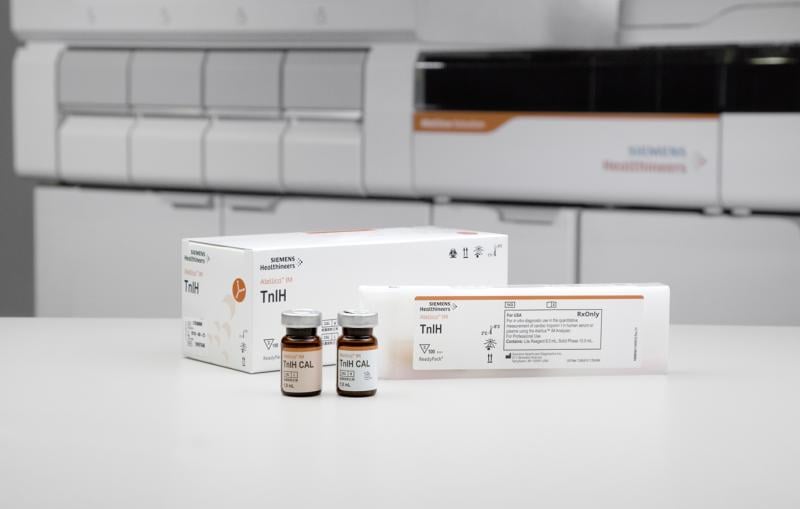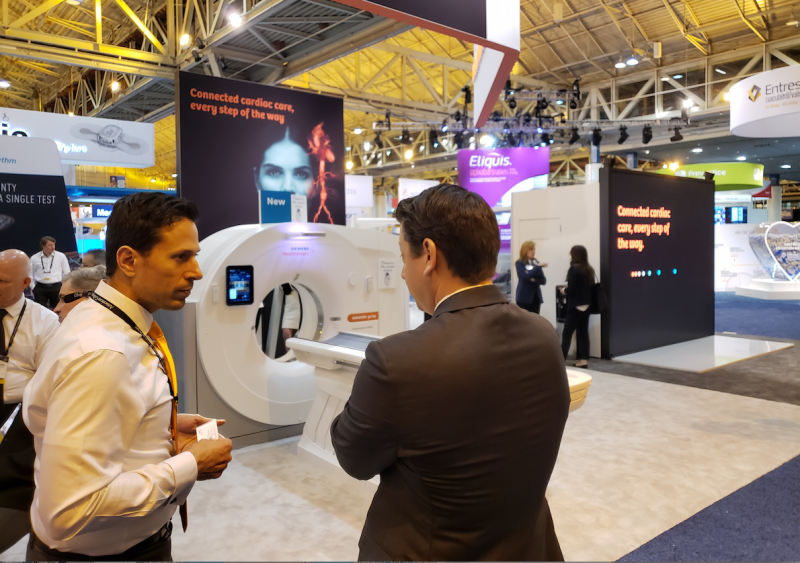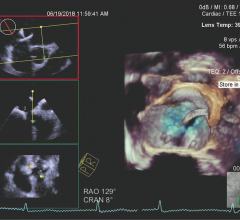Patients who stopped taking aspirin one month after receiving a stent in the heart’s arteries but continued taking the P2Y12 inhibitor clopidogrel fared significantly better after one year compared with those who followed the standard practice of continuing both medications, according to recent research. Stopping aspirin early was found to be superior in terms of the trial’s primary endpoint, a composite of death from cardiovascular causes, heart attack, clotting near the stent, stroke and major bleeding. The data were presented at the American College of Cardiology’s (ACC) 68th Annual Scientific Session, March 16-18 in New Orleans.
NZ Technologies Inc. announced the first published clinical review on its TIPSO technology’s ability to provide wireless, in-suite control of viewing and manipulation of images to physicians. Published in the peer-reviewed journal Vascular Disease Management, the review tested the technology in 15 consecutive cases. The authors found that the TIPSO AirPad improved workflow in a variety of procedures by minimizing the number of episodes of scrubbing out to view images outside the operating room, thereby reducing procedural time.
Phase 3 results from Study 2, also known as CLEAR WISDOM, of bempedoic acid were recently presented at the American College of Cardiology (ACC) Scientific Sessions & Expo, March 16-18 in New Orleans. Bempedoic acid is being developed as a complementary, cost-effective, convenient, once-daily, oral therapy for the treatment of patients with elevated low-density lipoprotein cholesterol (LDL-C). Bempedoic acid and the bempedoic acid/ezetimibe combination tablet new drug applications have been submitted to the U.S. Food and Drug Administration (FDA), and are under regulatory review for marketing authorization by the European Medicines Agency.
Providing exceptional cardiovascular care for patients to achieve the best possible outcomes is the number one goal for ...
Severely ill patients with advanced heart failure who received the HeartMate 3 left ventricular assist device (LVAD) suffered significantly fewer strokes, pump-related blood clots and bleeding episodes after two years, compared with patients who received an older pump. The data came from research presented at the American College of Cardiology’s 68th Annual Scientific Session, March 16-18 in New Orleans.
Magid Awadalla, MBBS, is an advanced cardiac imaging research fellow at Massachusetts General Hospital. He has been ...
Among patients with severe symptomatic aortic stenosis at low surgical risk, transcatheter aortic valve replacement (TAVR) using the Sapien 3 valve compared with conventional surgery significantly reduced the primary endpoint of death, stroke and re-hospitalizations by 46 percent at one year. The data, from the latest PARTNER trial, were presented at the American College of Cardiology’s 68th Annual Scientific Session, March 16-18 in New Orleans. In addition, the rates of death from any cause, stroke and repeat hospitalizations independently favored TAVR at 30 days and at one year, researchers said.
Cardiac positron emission tomography (PET) is growing in popularity among cardiologists because it provides the ability ...

Troponins are a family of proteins found in skeletal and heart (cardiac) muscle fibers that produce muscular contraction ...

March 22, 2019 — The U.S. Food and Drug Administration (FDA) issued a safety communication to alert healthcare providers ...
Raza Alvi, M.D., a research fellow in radiology at Massachusetts General Hospital, has been involved in a study of a ...
When performing radiofrequency (RF) ablation to treat cardiac arrhythmia, medical professionals must balance the safety ...

Reflecting a trend toward the increased use of computed tomography (CT) in cardiology, Siemens Healthineers launched a ...
Khaldoun Tarakji, M.D., MPH, associate section head, section of electrophysiology and pacing in the Robert and Suzanne ...
Christine Albert, M.D., MPH, director of the Center for Arrhythmia Prevention at Brigham and Women’s Hospital, and ...
Change Healthcare Cardiology Hemodynamics is an integrated hemodynamic monitoring system for monitoring vital signs and ...
Clinicians should use echocardiography when determining whether patients with heart failure and a leaking heart valve are likely to benefit from valve repair, according to research presented at the American College of Cardiology’s 68th Annual Scientific Session, March 16-18 in New Orleans.
The U.S. Food and Drug Administration (FDA) approved Impulse Dynamics’ Optimizer Smart system for treating patients with chronic, moderate-to-severe heart failure to restore a normal timing pattern of the heartbeat. The device is indicated for patients who are not suited for treatment with other heart failure devices such as cardiac resynchronization therapy. The FDA gave the Optimizer Smart system a Breakthrough Device designation because it treats a life-threatening disease, heart failure, and addresses an unmet medical need in patients who fail to get adequate benefits from standard treatments and have no alternative treatment options.
Results from the landmark Worldwide Randomized Antibiotic Envelope Infection Prevention Trial (WRAP-IT) demonstrated Medtronic’s Tyrx Absorbable Antibacterial Envelope reduced the risk of major infection by 40 percent, and pocket infection by 61 percent, in patients with cardiac implantable electronic devices (CIEDs). The improvements were in comparison to standard-of-care pre-operative antibiotics. The trial results were presented in a late-breaking session at the American College of Cardiology’s 68th Annual Scientific Sessions (ACC.19), March 16-18 in New Orleans, and published simultaneously in The New England Journal of Medicine.


 March 25, 2019
March 25, 2019














